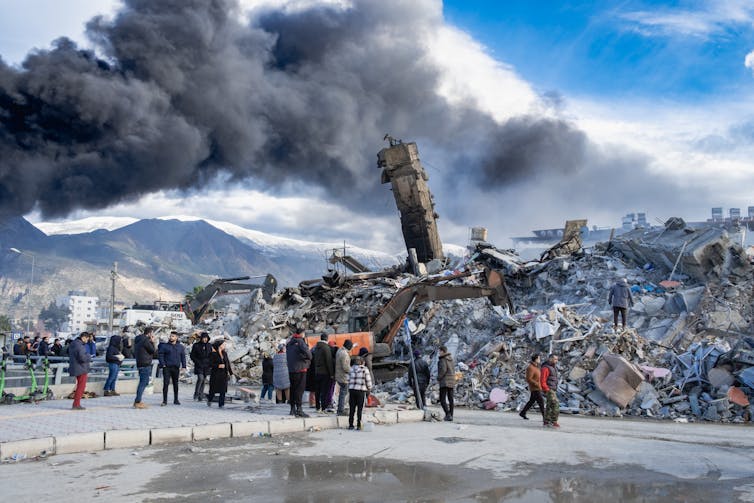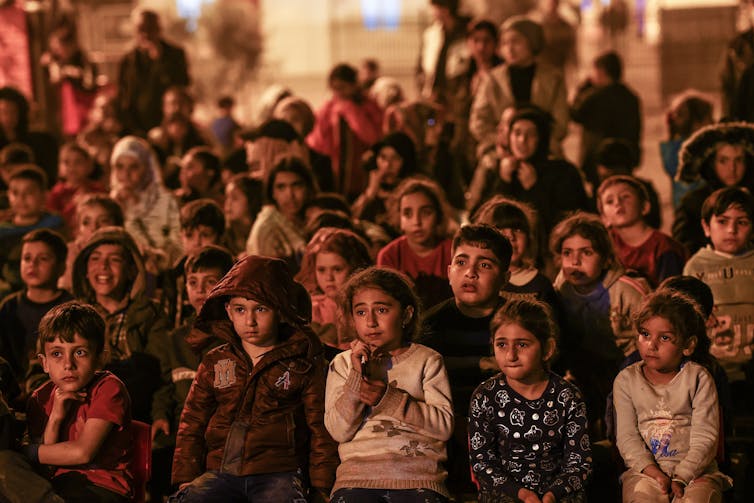Earthquakes have exposed deep social wounds and women bear the brunt

In the early hours of February 6, 2023, the southeastern region of Turkey was shaken by several strong earthquakes. A year later, large areas of Hatay, the worst-hit province, remain in ruins. On January 24, in a blog for Hayate, journalist Cunet Ozdemir commented: “The city is like a construction site mostly under rubble.”
The first earthquake, measuring 7.8 on the Richter scale, struck near the Syrian border and killed at least 1,500 people in their sleep. It was followed nine hours later by a magnitude 7.5 earthquake, located about 95 km to the southwest. Hatay, which was already in ruins, was shaken again by a magnitude 6.4 earthquake two weeks later.
The disaster resulted in more than 50,000 deaths and 107,000 injuries. A total of 9 million people have been affected, including 1.7 million refugees who fled the civil war in Syria.
A year later, the region’s economy and society remain shaken. The destruction has exposed deep social wounds, and the task of reconstruction is enormous.
economic impact
Before the earthquake the affected sectors accounted for 13.3% of Turkey’s total employment. The earthquake rendered approximately 220,000 workplaces unusable, resulting in a 16% reduction in working hours. Particularly affected provinces such as Hatay, Kahramanmaraş and Malatya lost more than 10% of their industrial capacity.
Even after a year, unemployment remains a serious problem. More than 230,000 people in the region applied for unemployment benefits throughout 2023, but less than 40% of these applications met the required criteria.
The Turkish government recently launched a program to help people return to work in the region. But unions see it as a way for employers to provide cheaper labor, and have called on the government to focus more on meeting workers’ immediate needs such as housing.

Doga Ayburk Demir/Shutterstock
fragmented society
The earthquake not only destroyed the economy of the region, but also destroyed the social fabric. More than 850,000 buildings collapsed in the initial earthquake and thousands of aftershocks. This revealed deficiencies in construction practices and widespread non-compliance with regulations.
The government promised to rebuild 650,000 homes within a year, but progress has been slow. Only 15% of these new homes have been built, and hundreds of thousands of people are displaced. Currently, more than 670,000 people are living in small temporary metal containers.
The earthquake also had a profound impact on the education of the area. Due to the damage caused to schools, in-person education of approximately 70 lakh students was disrupted.
Read more: Why do widespread earthquakes occur in Turkey and Syria
On January 2, 2024, Turkish Education Minister Yusuf Tekin acknowledged that only a quarter of the educational facilities destroyed by the earthquake had been rebuilt. During the last school year (mid-September to mid-January), students mainly met classes at construction sites.

Sedat Suna/EPA
Roadmap to Recovery
The Turkish government claims to focus on “building back better”. Its stated goal is to build cities and communities that are more resilient to these types of crises in the future. This is a commendable move (provided it is true), but it is important that recovery efforts go beyond mere reconstruction.
The government response to the disaster has largely failed. Following the earthquake, women and girls faced increased caregiving and domestic work responsibilities, health problems (particularly pregnancy-related), and increased vulnerability to violence.
Furthermore, they face persistent poverty. A recent report surveyed 60 women in the affected area, finding that most of them earn what is called the “female daily wage”. This salary is below the national minimum, further exacerbating the existing gender inequality in the country.
Although the response to the earthquake has been widely criticized, the government still enjoys strong support. In national elections in the summer of 2023, President Recep Tayyip Erdoğan and his coalition won ten of the eleven provinces affected by the earthquake.
Turks are now preparing for spring local elections. Current political rhetoric is dominated by an approach focused on replacing old buildings with new buildings that are not resistant to major disasters. But it is clear that the affected areas need a solution that involves all members of society, which will only be possible with the help of the national government.